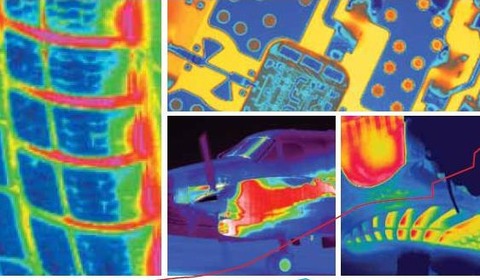
FLIR Systems has announced an updated 2013 edition of its ’Infrared Handbook for R&D Professionals‘.
Although infrared radiation (IR) is not detectable by the human eye, an IR camera can convert it to a visual image that depicts thermal variations across an object or scene.
IR covers a portion of the electromagnetic spectrum from approximately 900 to 14,000 nanometers (0.9–14 µm).
IR is emitted by all objects at temperatures above absolute zero, and the amount of radiation increases with temperature.
The 2013 Infrared Handbook has been written to enable users of thermal imaging cameras to develop a comprehensive understanding of infrared (IR) technology and use this resource as a guidebook for gaining optimal benefit from their camera.
FLIR experts have contributed on major topics including - how IR works, IR detectors for thermographic imaging, getting the most from your IR camera, how filters extend IR camera usefulness and ultra high-speed thermography.
To download a copy of the handbook, please click on the link above.




